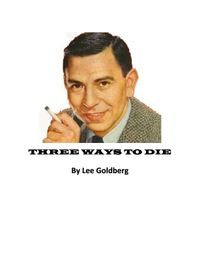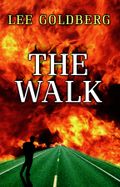The NBC series THE LISTENER, the latest Canadian-produced import on a major American network, isn't getting a warm critical reception so far. Variety savaged it, saying…
There's nothing wrong with U.S. networks picking up the occasional Canadian import, but to have a chance at working, such a show can't be as bland and colorless as "The Listener," which NBC is throwing onto Thursdays with a back-to-back episode launch. Built around a young paramedic with the telepathic ability to hear thoughts, the show looks chintzy, isn't particularly well acted and feels plucked from the 1970s. […]Canada remains a favorite destination for U.S. filming, but in terms of programs flowing in this direction, they ought to have more going for them than simply being in English, eh? "
The Chicago Sun Times was equally unkind.
Craig Olejnik, the Canadian who plays Toby, is down to earth and likably mumbly. His light blue eyes are so piercing you may forget that his special skill isn't X-ray vision. But he's supported by writing and characters that may induce eye-rolling. Take this line, delivered by Colm Feore as Toby's mentor: "You don't have to read my mind to know that I'm worried about you."
Newsday called it "listless" while taking a jab at Canadian TV as a whole:
One does not come to summer TV on a major network to have one's world rocked, and one most certainly does not come to Canadian TV for the same. The Canadians make nice TV – pleasant, intelligent TV, where people, even the bad guys, are civil and fundamentally decent. In a word, "The Listener" is boring.
Despite all the negative reviews here, the show has reportedly been a big hit overseas, so whether or not THE LISTENER does well for NBC this summer, it's likely to continue into a second season.
UPDATE 6-3-07: Even the Canadians are lukewarm on the show. For example, The Globe & Mail says it's "unbelievably bland."
This is a pity, because it's the second Canadian-made series in recent times to make the breakthrough and land on a U.S. network in prime time. Like Flashpoint before it, The Listener is set in Toronto, and Toronto features prominently, like an extra character. But The Listener is no Flashpoint . It lacks anything approaching gripping drama, for a start.
Tom Shales at the Washington Post says:
Near the hour's end, Toby laments of his gift that "all my life I told myself . . . 'Make it go away,' " and many a viewer will be wishing the same thing for the series.
The Boston Globe was even more brutal:
NBC gives us another excuse to close our borders: the Canadian import “The Listener."
UPDATE 6-5-07: The Listener did great in the ratings in its Canadian premiere but according to MediaWeek, it didn't fare too well in the U.S. in its NBC, double-episode debut:
There weren’t many viewers watching, or hearing, the debut of NBC’s “The Listener” last night, which aired against tough competition from the NBA finals on ABC and the night’s top-rated non-sports show, Fox’s “So You Think You Can Dance.”
“Listener” averaged a 1.4 adults 18-49 rating from 9 to 11 p.m., according to Nielsen overnights, finishing last in its timeslot among the Big Four networks.
The show sank slightly, from a 1.5 to a 1.4, from its first to its second hour, and it lost a good chunk of its 8 p.m. lead-in, “I’m a Celebrity … Get Me Out of Here!,” which averaged a 1.9 rating.







